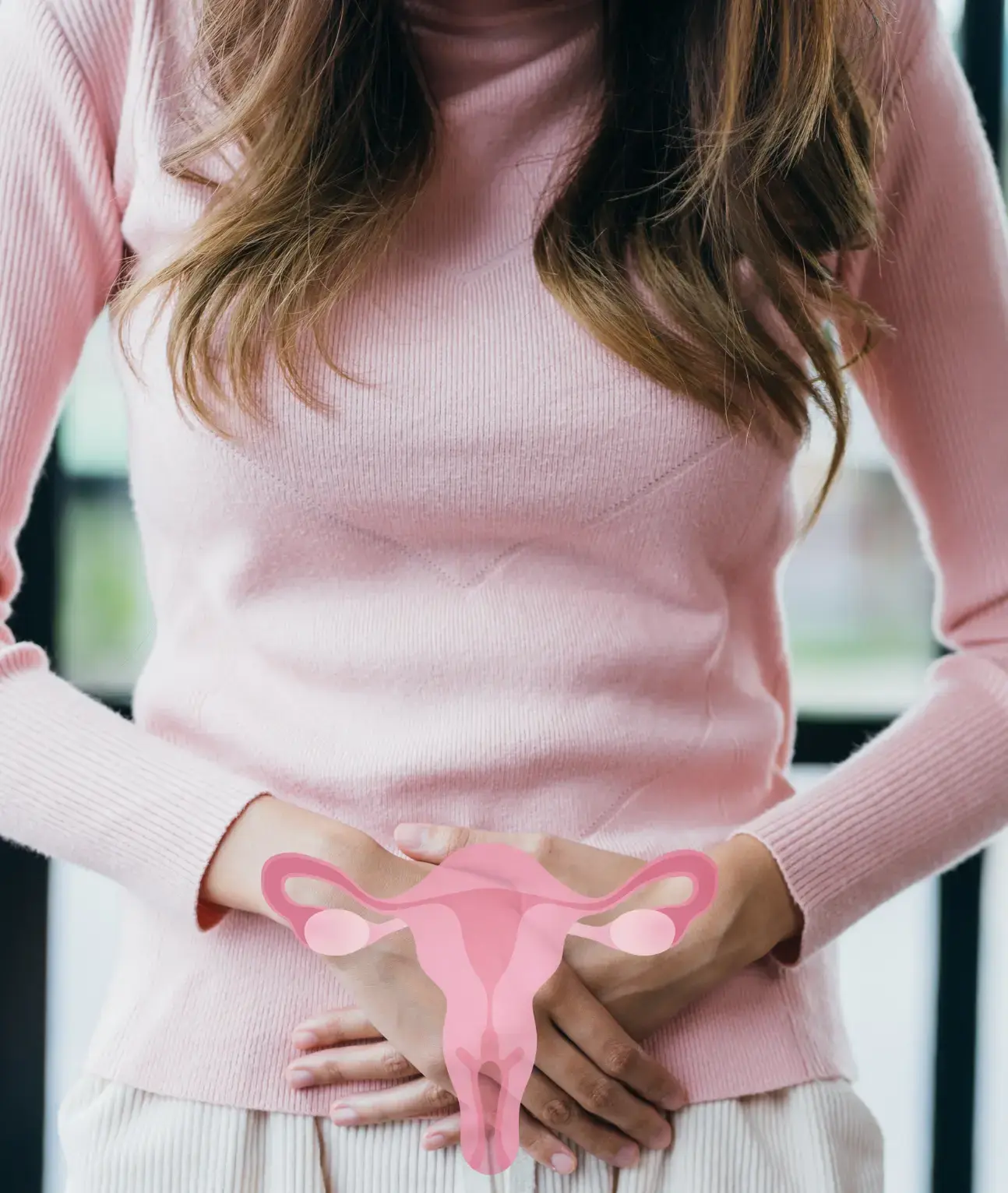During pregnancy, many women experience ovarian pain due to hormonal changes. While these pains are common in some cases, they can also be the root of immense concern. How do you identify if ovarian pain is normal or when it should be a cause for concern during pregnancy? Read on to discover the causes and ways to alleviate the pain!
Causes of Ovarian Pain in Pregnancy
Does ovarian pain occur during pregnancy? The answer is a yes and it originates from different reasons. In the early stages of pregnancy, the pain may be a result of the implantation process of the fertilized egg in the uterus, this would cause sensations similar to menstrual cramps. In addition, the increased production of hormones, such as estrogen and progesterone, cause changes in the ovaries, leading to some degree of discomfort.
As pregnancy progresses, uterine growth presses on the ovaries and surrounding ligaments, causing lower abdominal pain, often described as throbbing or cramping.
Ovarian pain in the third trimester of pregnancy
Ovarian pain in the third trimester of pregnancy is less common than in earlier stages, this is due to the anatomical and hormonal changes inherent to this process. However, some women may experience discomfort in this area due to the growth of the uterus, which puts pressure on the pelvic organs, including the ovaries. This pain manifests itself in sensations of pressure, heaviness or tightness in the pelvic and lower abdominal region. Also, the baby's increased weight contributes to the discomfort. Ovarian pain in the last month of pregnancy is less common, although some women experience the same sensation of pressure as well as heaviness.
Ovarian pain in pregnancy at 7 months
The sensations of discomfort vary from person to person, some may experience a decrease in ovarian pain in 7 month pregnancy compared to earlier stages as the growing uterus moves up and back the ovaries. On the other hand, others may experience discomfort in the lower abdominal area and pelvic area as a result of the same uterine expansion.
Is it normal to feel pain in the ovaries during pregnancy?
Pregnancy is a caring process and it is understandable that certain sensations may cause misgivings or distress. However, ovarian pain is normal in pregnancy and it depends on the nature of each organism. How long does ovarian pain last in pregnancy? It may last for a few minutes or even hours, but you should take action if it lasts for weeks.
Ovarian Pain Relief during Pregnancy
Whether it's the degree of pain, discomfort or heaviness, if you've ever wondered how to get rid of ovarian pain in pregnancy, here are some tips and advice:
Tips to relieve ovarian pain in the third trimester.
- Rest: Take frequent breaks and elevate your legs to reduce pressure on the ovaries and pelvic region.
- Local heat: Apply warm compresses or take warm baths to soothe tense muscles and reduce pain.
- Light exercise: Practice gentle, pregnancy-specific exercises, such as prenatal yoga or short walks, to improve circulation and ease discomfort.
- Correct posture: Maintain correct posture when sitting and sleeping to reduce pressure on the ovaries and lower back.
- Hydration and balanced diet: Drink enough water and eat a diet rich in fiber and nutrients to maintain a healthy digestive system and avoid inflammation.
How to relieve ovarian pain in the last month of pregnancy.
- Perform relaxation exercises: Practicing deep breathing techniques, meditation or prenatal yoga help to reduce stress and muscle tension
- Resorting to gentle massages: Some gentle massages around the pelvic and abdominal area to improve blood circulation and reduce tension in these muscles.
- Use of cold compresses: Applying cold compresses to the pelvic area helps to reduce inflammation caused by pain.
Is ovarian pain in pregnancy bad?
It is impossible not to question whether ovarian pain in pregnancy is bad. When the pain is mild, sporadic or controlled, then there should be no major concerns. But, in certain cases, ovarian pain is an indication of conditions such as ovarian cysts, ovarian torsion or pelvic inflammatory diseases.
It is recommended to visit a specialist if the pain becomes increasingly severe, if it is accompanied by other symptoms such as vaginal bleeding or fever, or if it persists over a long period of time.
Pay attention to symptoms that may indicate that these are not hormonal processes but major complications that should be treated urgently as pelvic swelling or cysts. Schedule a consultation.





















Completa el formulario para comentar